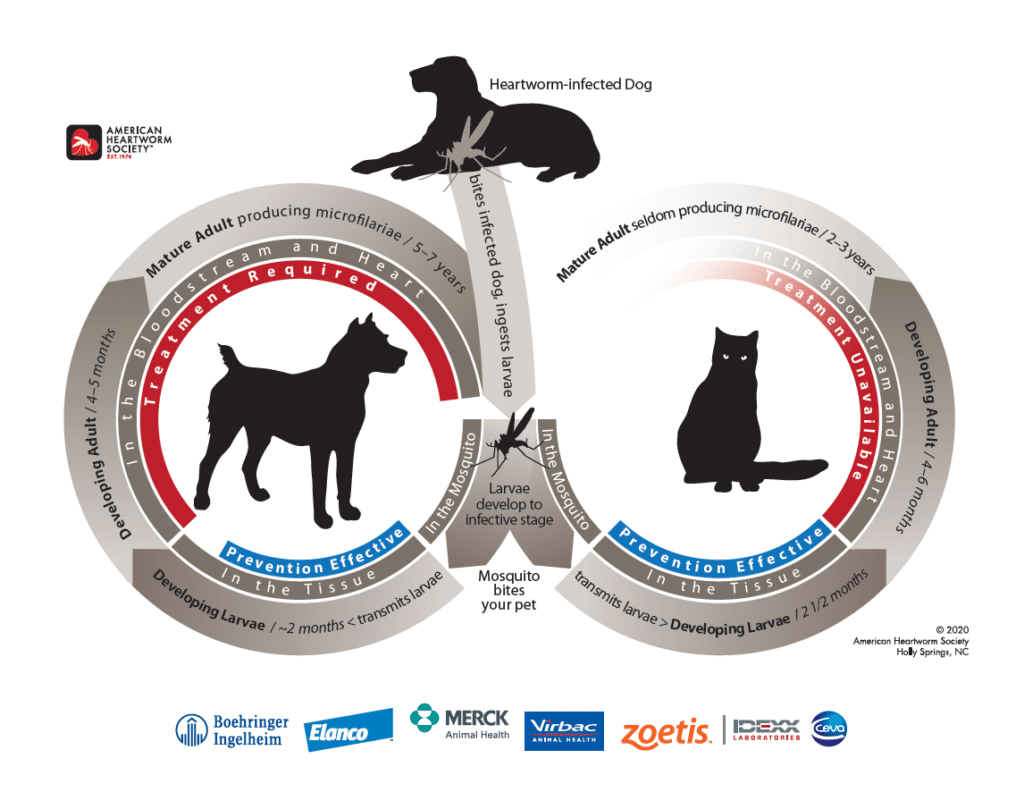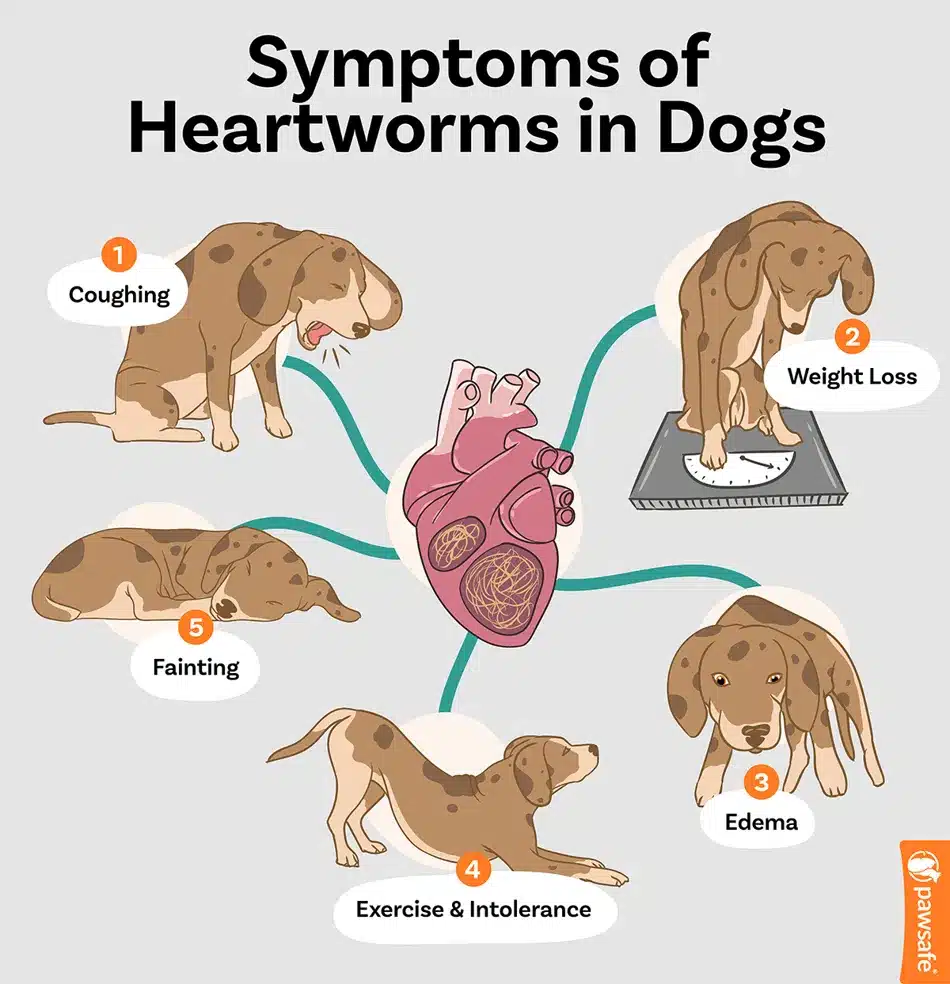
Beware of Heartworms: A Major Health Concern for Dogs in Texas
Texas is known for its vast landscapes, warm climate, and an abundance of outdoor activities perfect for our furry friends. However, the Lone Star State is also a hotspot for a dangerous health threat to dogs: heartworms. These parasitic worms pose serious risks to our beloved pets, making it crucial for dog owners to be aware and take preventive measures. Let’s dive into why heartworms are a significant concern in Texas and how you can protect your dog.
1. Understanding Heartworms:
What Are Heartworms?
Heartworms are parasitic worms that can infect dogs, cats, and other mammals. They are transmitted through the bite of an infected mosquito. Once inside the host, the larvae mature into adult worms that reside in the heart, lungs, and associated blood vessels, causing severe health issues.
Fun Fact: A single mosquito bite can be enough to transmit heartworm larvae to your dog.
Symptoms of Heartworm Disease:
Heartworm disease can manifest in various ways, depending on the severity of the infection. Common symptoms include:
•Persistent cough
•Fatigue after moderate activity
•Decreased appetite
•Weight loss
•Swollen belly due to fluid in the abdomen
•Labored breathing
In advanced cases, heartworms can cause heart failure and damage to other organs.
Fun Fact: It can take up to six months for heartworm larvae to mature into adult worms and start causing symptoms.
2. Why Texas is a Hotspot for Heartworms:
Climate and Mosquito Population:
Texas’ warm and humid climate provides the perfect breeding ground for mosquitoes, the primary carriers of heartworm larvae. The state’s long mosquito season means that dogs are at risk for most of the year.
Fun Fact: Texas has over 85 species of mosquitoes, many of which can transmit heartworms.
Outdoor Activities:
Texans love spending time outdoors with their pets, whether it’s hiking, camping, or just enjoying a day at the park. While these activities are great for bonding and exercise, they also increase the chances of mosquito exposure.
Fun Fact: Heartworm disease has been reported in all 254 counties in Texas, making it a widespread concern.

3. Preventive Measures:
Heartworm Preventatives:
The best way to protect your dog from heartworm disease is through preventive medication. These medications are typically administered monthly and are highly effective at killing heartworm larvae before they mature. Consult your veterinarian to find the best preventive option for your dog.
Fun Fact: Some heartworm preventatives also protect against other parasites like fleas and ticks.
Regular Vet Checkups:
Regular veterinary checkups are crucial for early detection and prevention. Your vet can perform heartworm tests and ensure that your dog remains healthy and heartworm-free.
Fun Fact: A simple blood test can detect heartworm infection, even before symptoms appear.

Reduce Mosquito Exposure:
Minimize your dog’s exposure to mosquitoes by:
•Keeping them indoors during peak mosquito activity (dawn and dusk)
•Using mosquito repellent products safe for dogs
•Eliminating standing water around your home where mosquitoes breed
Fun Fact: Mosquitoes can breed in as little as a teaspoon of water, so keep your yard free of stagnant water.

4. Treatment for Heartworm Disease:
Medical Treatment:
If your dog does contract heartworms, prompt medical treatment is essential. Treatment usually involves a series of injections to kill the adult worms, followed by medication to eliminate any remaining larvae. This process can be lengthy and stressful for your dog, emphasizing the importance of prevention.
Fun Fact: Heartworm treatment can cost more than 15 times the price of a year’s supply of preventative medication.
Post-Treatment Care:
After treatment, your dog will need several months of rest and restricted activity to ensure a full recovery. Regular follow-up visits to the vet are necessary to monitor your dog’s progress and prevent re-infection.
Fun Fact: Dogs with severe heartworm disease may require additional treatments and supportive care.

Conclusion:
Heartworms pose a significant health threat to dogs in Texas, but with the right preventive measures, you can keep your furry friend safe and healthy. Regular vet checkups, monthly preventive medication, and minimizing mosquito exposure are key strategies in protecting your dog from this dangerous parasite. By staying informed and proactive, you can ensure that your dog enjoys many happy, heartworm-free years.
For more information on heartworm prevention and treatment, consult your local veterinarian or visit reputable sources such as the American Heartworm Society. Remember, prevention is always better than cure, so take steps today to safeguard your dog’s health.




